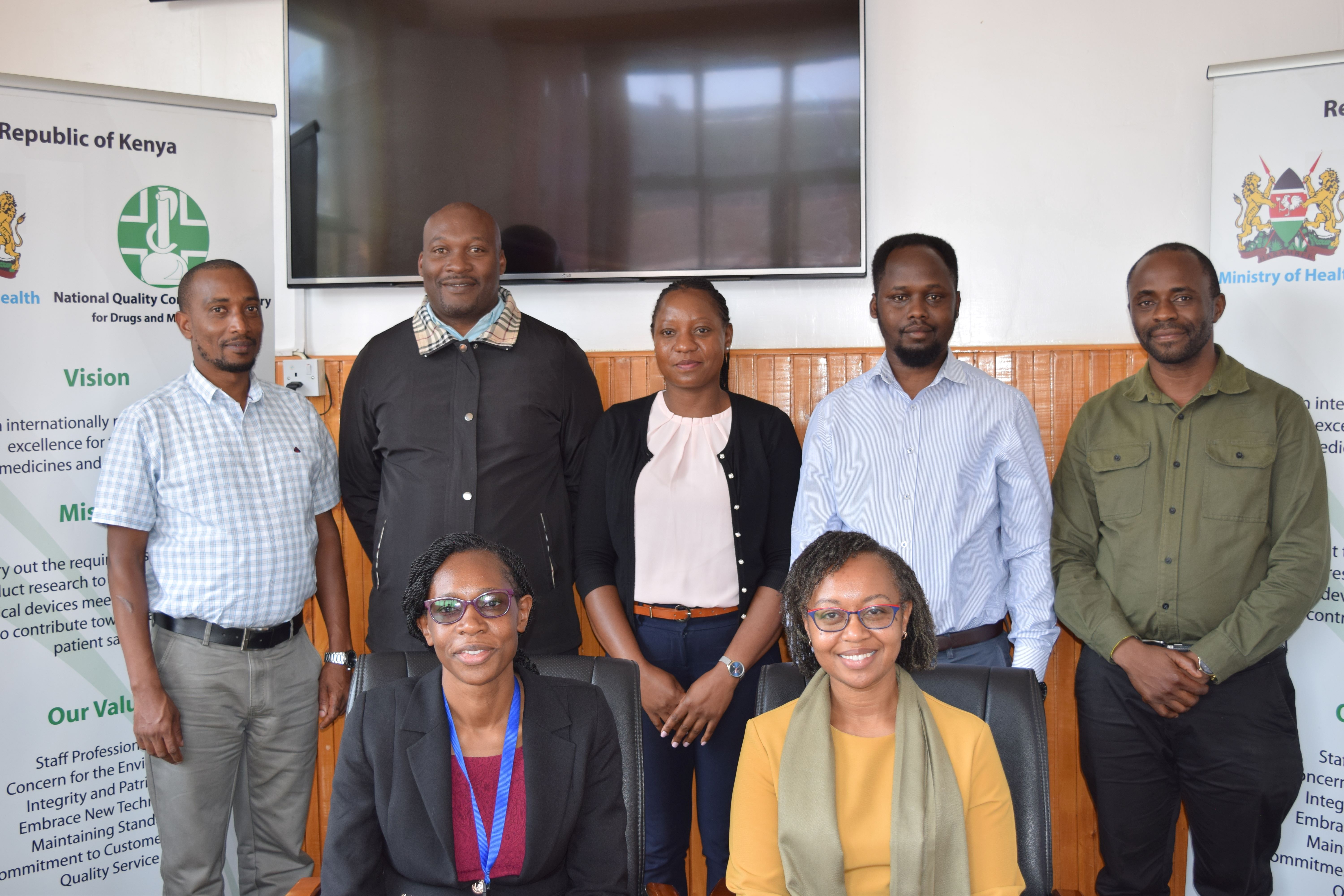The USAID Global Health Supply Chain Program activity in Kenya, known as Afya Ugavi, has been supporting various agencies within the Kenyan government for many years, including public health agencies like the National Malaria and National AIDS and STIs Control Programs. One particular partnership has a major impact on the quality of medicines reaching patients across the country, with the National Quality Control Lab (NQCL). This laboratory is operated by a group of dedicated individuals committed to keeping their fellow citizens safe.

Leaders at NQCL, including Ag. Director, Dr. Serah Muteru, emphasized the importance of sustainable change.
Afya Ugavi has provided NQCL with procurement support, including to arrange critical servicing and calibration of analytical equipment used to test medical samples. Afya Ugavi has also supported improvements in organizational capacity through training, strategic planning, and review of Key Performance Indicators (KPIs). With this support, the NQCL team is on its way to achieving the WHO-designated maturity level 3 (ML3). Afya Ugavi has partnered with the Kenyan government to build upon strengths and address regulatory systems gaps per WHO’s Global Benchmarking Tool assessment, actions which will allow NQCL to achieve ML3 certification.
Lab technicians at NQCL have been trained by Afya Ugavi and partners to improve lab performance.
One major milestone has been the procurement, installation and use of WIFI-enabled data loggers for temperature and humidity monitoring, to address environmental monitoring gaps raised by WHO. These devices not only collect ample data on the conditions of the lab in real time, but are a welcome alternative to standard temperature monitors that require manual record keeping. The NQCL team noted that within the first two months of using the devices, they were notified of an emergency power outage which they could mitigate in a timely manner to ensure the testing samples were not tainted. The devices automatically log the data they collect and can easily be moved around the lab when needed.
Data loggers monitor environment and automatically log data into the cloud.
NQCL Ag. Director, Dr. Serah Muteru, noted that Afya Ugavi "came at the right time" to provide support, helping the lab work more strategically and in a way that is better aligned with the rest of the government. She said that Afya Ugavi's position as a partner and coordinator between agencies has been critical for improving collaboration across the public health supply chain.
Other team members highlighted the importance and impact of strategic planning and KPIs. This support resulted in:
- NQCL’s ability to address the gaps identified during the benchmarking process
- Increased attention and collaboration from partners, which contributes to the sustainability of NQCL improvements
- Broken-down silos with the Ministry of Health (MOH) and increased visibility in both directions as a result of aligning with the broader public health supply chain strategic plan
- Making NQCL’s role with counties clearer
Afya Ugavi has also supported NQCL and MOH as they create a plan to manage oxygen commodities across the country. The project trained biomedical engineers, created Standard Operating Procedures (SOPs) and is working to implement a reporting tool for oxygen quality.
Laboratory technicians prepare samples for quality testing.
This comprehensive and collaborative approach is the hallmark of Afya Ugavi’s support across Kenya’s health supply chain, and is critical to ensuring only quality assured medicines reach patients in need.
All photos in this article are credited to GHSC-PSM/Charlotte Stein.